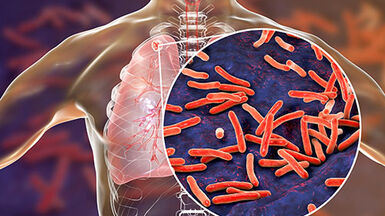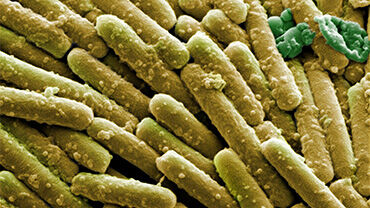Survey protocol for whole genome sequencing of Clostridioides difficile isolates from tertiary acute care hospitals, EU/EEA, 2022–2023
This protocol describes a survey undertaken to acquire a snapshot of the distribution of Clostridioides difficile strains in tertiary acute care hospitals in the European Union/European Economic Area (EU/EEA) in 2022–2023. This activity supports subsequent risk assessment by enabling the potential extrapolation of strain-specific findings from subnational, national or multi-country activities to the EU/EEA. The results could contribute to ongoing ECDC CDI surveillance activities, scientific studies or in silico analyses. ECDC will also consider the experience of this project during any upcoming update of the ‘ECDC strategic framework for the integration of molecular and genomic typing into European surveillance and multi-country outbreak investigations (2019–2021)’.
Executive summary
National Focal Points (NFPs) for healthcare-associated infections (HAIs) and/or National Microbiology Focal Points (NMFPs) were invited to initiate national participation in this survey by designating National Survey Coordinators (NSCs). This protocol describes how NSCs were to recruit tertiary acute care hospitals to report C. difficile isolates from C. difficile infection (CDI) cases. The survey had funding for 990 samples/isolates (DNA or bacterial pellets), which equates to 0.5–0.9% of the estimated annual number of healthcare-associated C. difficile
infection (HA CDI) cases in the EU/EEA.
Participating laboratories submitted DNA/pellets for C. difficile isolates to an ECDC laboratory contractor (Eurofins Genomics (FWC ECDC/2019/041)). The contractor was obliged to send whole genome sequencing (WGS) data back to each participating laboratory within four weeks and to store the data for three months. Participants were welcome to use the WGS data they received for their own purposes (e.g. public domain outputs). ECDC will publish the full dataset in the European Nucleotide Archive (ENA) to accompany an article co-authored with
participating countries and submitted to an open access, peer-reviewed journal. Subsequently, ECDC will publish an ECDC Technical Report that contains all results from the survey and a link to the ENA database.
The preferred C. difficile isolates for hospitals to submit were HA CDI cases imported from another hospital (excluding recurrent cases, if feasible) or otherwise consecutively detected HA CDI or CDI cases. Tertiary acute care hospitals were the focus of this survey because they commonly receive more patient transfers than other hospital types. The number of tertiary acute care hospitals that NSCs were to recruit to this survey was proportional to the estimated number of these hospitals per country. Accordingly, the sample size calculation recommended that 50% of EU/EEA countries recruit one to five hospitals, 25% of countries recruit five to seven hospitals, and the three countries with the largest populations recruit 29–47 hospitals (Table 2). The sample size calculations and available budget for this survey implied that participating hospitals in 50% of EU/EEA countries would report one to six CDI cases per hospital, with another 40% of countries reporting six to seven cases per hospital and the remaining 10% reporting more than six cases per hospital. Countries could consider assigning one laboratory/hospital as a central coordinator for this survey. The recruited tertiary acute care hospitals may be referred to nationally as ‘central’ or ‘regional’ hospitals, such as large university teaching hospitals.
The core surveillance period for this survey was January to May 2022. Hospitals that preferred to report consecutive HA CDI or CDI cases could also report retrospectively from May 2021 onwards or prospectively up to April or May 2022. We suggested that participating hospitals store eligible samples if they exceeded the permitted maximum, as it was likely that not all countries would participate in the survey and so more samples might be permitted at a later date. The first deadline for participating laboratories to submit samples to Eurofins was 21 April 2022. By 28 April, ECDC was to inform each NSC how many more samples their hospitals could submit to Eurofins. Thereafter, if authorised by NSCs, participating laboratories could submit bacterial pellets to Eurofins up to 24 May or DNA up to 31 May 2022. In 2023, some participating countries were given another opportunity to submit samples, as more budget became available.








